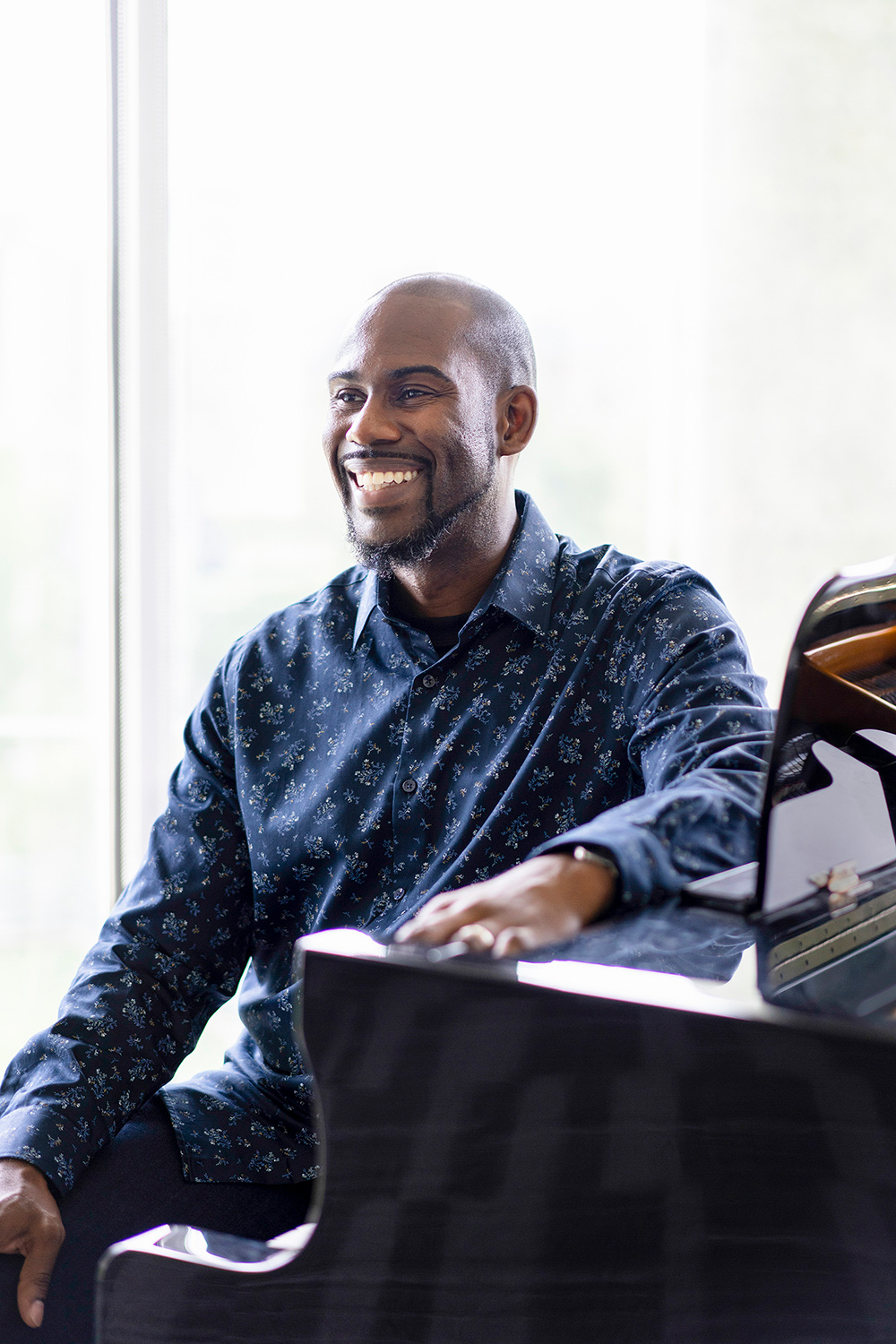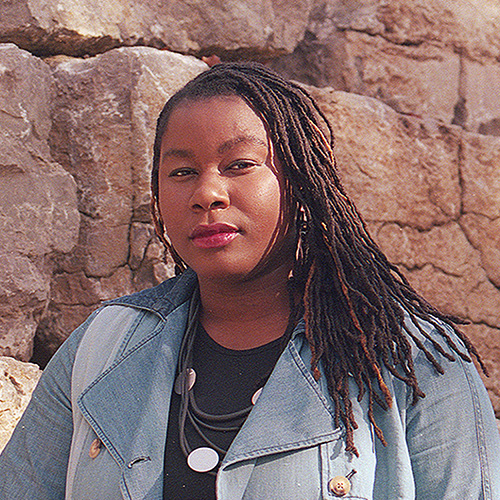Darren Hamilton (BEd 2008 OISE) grew up in Toronto listening to gospel music at home and in church. Today, he teaches music to high school students in the Peel District School Board, sharing with them his love for an artform which, he says, brings him joy every day. In May, in recognition of his commitment to music education, Hamilton won the MusiCounts Teacher of the Year Juno Award, becoming the first Black person to receive the honour. 1
What did winning the Juno Award mean to you?
I can’t tell you how many of my students – Black, white, East Asian and South Asian – and even students I never taught have congratulated me and told me how inspired they are that I won. This kind of recognition is so important because it helps racialized students see that they can pursue a career in music, whether as a music teacher, producer or engineer – that there is a place for them in music.
Every Juno winner starts somewhere. What was your introduction to music?
My parents started me (and my brother) in classical piano training when I was about eight or nine. 2 We went to church most Sundays, so music was a natural part of my life. As I got more involved in youth choirs and progressed with my piano training, the church pianist would sometimes get me to sit beside him as he performed, and gradually allowed me to play some songs during services.
In middle school, you picked up saxophone and double bass but didn’t take music at all in high school. What happened?
The genres I loved – R&B and gospel music – weren’t available to study. So I focused on business courses and played music outside of class. In undergrad, my musical journey was … not smooth. My passion was gospel music and again there was no opportunity for me to pursue that. I struggled to see where I fit in. I started a double major in music and computer science but ended up moving to Edmonton for a music program that offered R & B, blues and funk. I returned to Toronto later to do a teaching degree.
Has your journey influenced how you teach?
I want to ensure my students can explore the music they’re actually interested in, no matter the genre. I don’t set the agenda. It’s more, “Let’s listen to some pieces together and decide as a class which ones to play.”
Can you teach anyone music?
Absolutely. I pride myself in teaching a holistic music program. It’s not the traditional performance-based high-school class, where students have an instrument in hand and spend the entire semester learning how to play it. We explore topics such as musical analysis, composition, lyrics and music in society. We look at non-performance careers in music. There are countless things you can do!
Has pursuing a PhD at U of T’s Faculty of Music influenced anything about how you teach 3?
As a result of research I did on African drumming, I’ve been able to put together drum circles in my class that we performed during Black History Month.
That’s something I’m not sure many people learn in high school music class…
My hope is that all music students soon will be able to learn the history and culture of non-Western genres – such as Indian styles of music, traditional Chinese music, gospel, trap and others. But to achieve this, we need to look at how we train music teachers.
U of T offers courses in Japanese taiko drumming and Inuit throat singing, and my own gospel choir course has been running for three years. But these courses are usually optional. A music student can go through the entire program and graduate as a classically trained musician without these other skills and perspectives. If these graduates go on to become music educators – guess what? – they don’t have the skills or training or background to explore these other musical genres with their students.
What do you think needs to change about how music is taught in Canada?
We need to dismantle the Eurocentric nature of music education because it presents barriers for racialized students. Often, they haven’t received classical training. As university students, they tend to struggle with formal music theory because they’re more familiar with the aural traditions from pop music or their own culture. For example, if you listen to popular music such as Beyoncé and sing along with the melody, you don’t look at sheet music. A lot of African music and gospel music is call and response. 4 It’s important for music educators and institutions to value those aural skills just as much as they value notation skills. For me, the ideal music education values both ends of the spectrum – and helps to develop well-rounded musicians.




7 Responses to “ Spreading the Gospel ”
As a U of T Music grad (BMus 1972) and former Peel District School Board music teacher and principal, I appreciate Darren Hamilton's fresh perspectives on how music teaching needs to adjust to the realities of our ever-changing society.
It's such a good idea to acknowledge other musical traditions. We are a much more diverse country now.
This is an inspiring article and I love the emphasis on well-rounded musicians who value aural skills, such as those frequently showcased in music with African roots, as much as the notation skills typically associated with European traditions.
Was the capitalization of every ethnic identity in the second paragraph except "white" deliberate? The image of equity as a crate for historically marginalized folks to stand on is powerful, but diminuative treatment of an an ethnic group seems a problematic way of accomplishing the desired effect.
Ruth Ferguson (BA 1984 Victoria) writes:
Darren Hamilton's story is truly inspiring because he blazed a trail where there wasn't one before. His joy in making music is written all over his face!
@Bruyere
Editor Scott Anderson responds:
Following Canadian Press style, University of Toronto Magazine capitalizes Black in reference to a person’s race to reflect a shared sense of identity, history and community. (Regional affiliations such as East Asian or North American are also capitalized per CP style.)
White remains lowercase – in part because this group lacks a similar shared culture and experience, and because of the risk of lending legitimacy to white supremacist ideology. This decision reflects efforts by news organizations across Canada and elsewhere to recognize systemic anti-Black racism, and work by Black journalists and activists who requested this change for years.
Read more about the rationale here.
Fantastic article. Congrats to Darren Hamilton on his award.
What a change-maker. Darren Hamilton's vison for how to improve the way students experience music makes me proud to be a U of T alum.